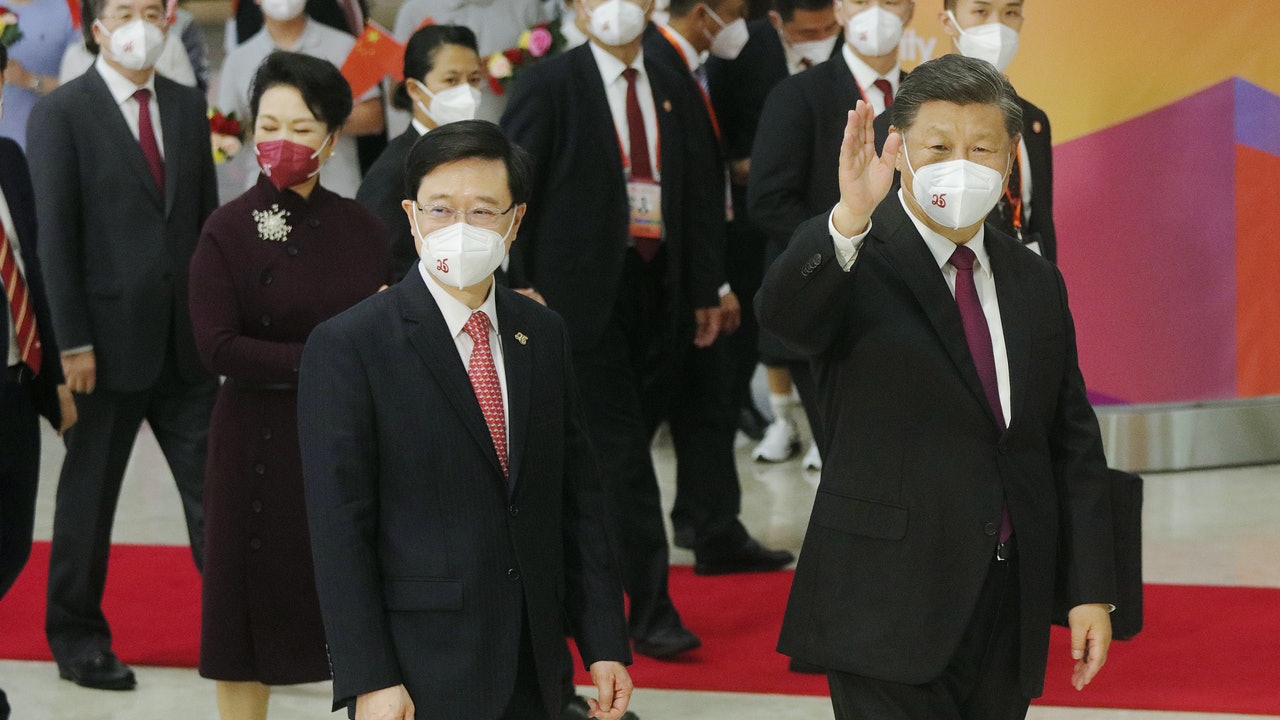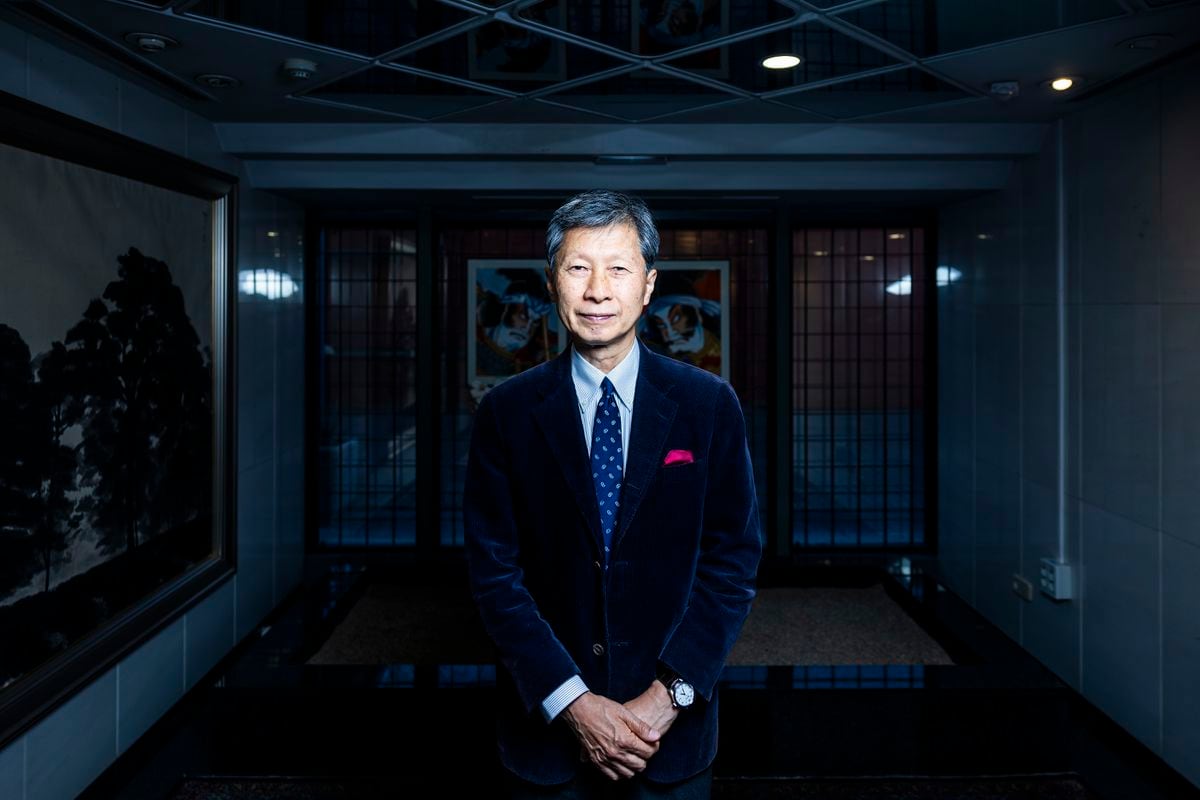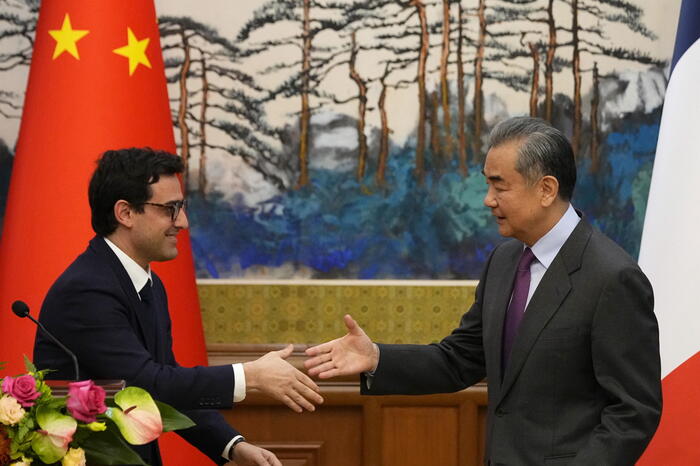Introduction: On July 1, according to the established schedule, the 25th anniversary of Hong Kong's return to the motherland and the inauguration ceremony of the sixth government of the Hong Kong Special Administrative Region were held at the Hong Kong Convention and Exhibition Center. There is no reason to change such a good system as one country, two systems, and it must be adhered to for a long time.” He also raised four points of hope.
Before July 1st, "Hong Kong 01" interviewed Chen Duanhong, a professor of Peking University Law School, to systematically summarize the past 25 years of Hong Kong. The interview was published in four articles. This is the second article, focusing on Chen Duanhong's article "Understanding Hong Kong Politics". The proposed confrontation structure unfolds.
In Chen Duanhong's view, confrontation is just a neutral word, and in order for Hong Kong to remain competitive, the central government and Hong Kong need to maintain the necessary tension.
Hong Kong 01: You started your 2016 article "Understanding Hong Kong Politics" by saying, "In the confrontational structure, we do not have to expect the kind of harmony that is integrated and intimate, and we seek to maintain the unity and security of the country, but to seek heterogeneity. Cooperation. Hong Kong people should cherish the great blessing of "one country, two systems", and do not abuse the confrontational structure and the freedom and power of "say no"." He also mentioned six antinomies around Hong Kong politics later on, namely: Hong Kong's internationalization VS Sovereign Naturalization, Administrative Regions VS Specialization, Residents VS Citizens, Capitalist Democracy VS Communist Party Leadership, Common Law VS Chinese-style Civil Law, High Autonomy VS Central Supervision.
Considering the trend of real politics in Hong Kong in the past few years, and combining theory with practice, has Hong Kong abused the confrontation structure?
Has the substance and balance of these couples changed?
Chen Duanhong, a professor at Peking University Law School, accepted an exclusive interview with Hong Kong 01, systematically summarizing the 25 years of Hong Kong's return to China.
(State Information Office)
Chen Duanhong: When I wrote this article, I had been working in Hong Kong for several years. Regarding Hong Kong issues, I wanted to be more systematic and theoretical to form a framework for understanding.
This article is a summary of my many years of thinking, a self-confession.
I summarize the spiritual structure of Hong Kong politics as confrontation, which I think is the core concept for understanding Hong Kong politics.
Confrontation is a neutral word, good and bad, and the confrontational structure is easy to abuse.
Someone suggested to me, how do you use one word for both good and bad?
Later, I found a reference, which is the "Goddess of Ernes" in Greek mythology.
She has two faces, one is the "Mother of All Evils" who led to the Trojan War, but the other version of the goddess Ernes represents the virtues of competition, self-motivation, and perseverance. Nietzsche also emphasized the spirit of Ernes. .
I wrote an article "The Hong Kong Face of Goddess Ernes" in a Hong Kong newspaper.
The reason why Hong Kong politics presents a confrontational structure is that Hong Kong is allowed to implement capitalism, which can form a competitive relationship with socialism in the mainland.
The vision of "one country, two systems" needs to be implemented through the specific system of the constitution.
In terms of constitutional design, if we want Hong Kong's capitalism to develop and benefit from capitalism, the constitutional structure must reflect the elements of this confrontation.
You just mentioned six antinomies.
Antinomy is that both may be right, but in a confrontation, if either party goes to extremes and does not know how to compromise, the situation will be more troublesome.
This is a tense relationship. In the face of a tense relationship, there must be a degree of tolerance. When it is critical, you need to know how to compromise.
As for the new changes in the confrontation structure in the new period, I don't think the tension is so great.
But I hope the necessary tension can still be maintained.
Without the necessary tension, Hong Kong will gradually lose its competitiveness.
If the entire social and political structure of Hong Kong does not have the spirit of competition, then the society as a whole will lose its competitiveness whether it is compared with mainland cities, Singapore or other international metropolises.
To avoid vicious confrontation, but also to maintain normal confrontation.
Hong Kong 01: Maintaining a normal confrontation involves the issue of balance, but in reality, balance is often the most difficult to grasp.
What can Hong Kong and the central government do to maintain this normal confrontation?
Now, many Hong Kong people are worried about whether the central government will go to the other extreme and break the original confrontation structure in the process of bringing things right. For example, the honorary chairman of the Liberal Party, Tian Beijun, described that Hong Kong is being mainlandized. Some people worry that there is no freedom between political parties. competition, and so on.
Of course, it can also be understood in reverse. It was Hong Kong who first abused the confrontation structure and abused the freedom and power of "say no".
Chen Duanhong: No matter what the confrontation structure is, it is a dynamic balance, not a static thing.
The so-called dynamic balance, sometimes there may be more power on one side, and sometimes more power on the other side, but as long as you don't go to extremes, you can actually adjust it slowly.
Tian Beijun, Honorary Chairman of the Liberal Party and Chairman of Wantai Group, admitted that Hong Kong is being mainlandized when accepting "Hong Kong 01".
(file picture)
Regarding party politics in Hong Kong, unlike Western countries, it is not mature and has a fully developed form.
Since the emergence of political parties in Hong Kong, party politics in Hong Kong has shown a stunted state of development.
The new electoral system can indeed overcome some of the original drawbacks, eliminate some of the political figures who opposed China and disturbed Hong Kong in the past, and restrict illegal political activities and political propaganda.
Under the new electoral system, party politics in Hong Kong will certainly not be as active as before, and the space will be narrowed.
To restore the word Party to Part, and understand it from the organization of some people who share common political interests, aspirations, values, and policy orientations, then I think political parties will still exist in Hong Kong.
Now, some people are uniting and forming groups to do election work. This political phenomenon will still exist for a long time, but the confrontation between political parties will definitely not be the same as before.
As for the issue of inlandization you mentioned, it is actually a matter of degree.
After all, Hong Kong is small and has a small population. It has its own advantages, but it is impossible to have everything. Therefore, it must be deeply integrated with the mainland.
If you equate integration with inlandization, it would be wrong to say that, because there will be no major changes to the Basic Law, the principle of one country, two systems, and the right to a high degree of autonomy.
However, fusion necessarily requires a certain degree of convergence, which is the result of a cooperative interaction based on mutual respect, not a bad thing.
I hope that Hong Kong people will not regard integration as a derogatory term, do not put integration and autonomy against each other, and do not regard mainlandization as an inevitable, inevitable and bad consequence of integration.
On the other hand, if Hong Kong does not have international functions and the ability to communicate internationally, then it is not a matter of inlandization or inlandization, and you will lose your own capital and capital on which to stand.
The uniqueness of Hong Kong lies precisely in its two-way development, backed by the country and connected with the international community.
The Hong Kong Container Terminal operates as usual under the fog, with containers stacked like building blocks, mechanical cranes loading and unloading containers, and large trucks lined up beside the docked cargo ships waiting to unload, forming the logo of Hong Kong Sexual picture.
The picture shows the Kwai Chung Pier in Hong Kong.
(Xinhua News Agency)
Hong Kong 01: Speaking of the internationalization of Hong Kong, you mentioned last time that Hong Kong is an important testing ground for China to go global, and China is more fortunate than the Soviet Union because it has a Hong Kong.
Next, how can Hong Kong continue to play the role of an important testing ground for China to go global?
How to push China to better deal with capitalist countries?
Chen Duanhong: To understand the role and role of Hong Kong in the future, we must first summarize what role Hong Kong has played in the past, what role it has played, what has become less important, and what is still important.
With the continuous advancement of reform and opening up at the national level, Hong Kong's role as the "teacher" of the mainland is weakening. We must view the changes in the roles of both parties from a developmental perspective in accordance with the changes of the times.
At present, Hong Kong has two soft powers that are incomparable to mainland cities. First, the working language of many institutions in Hong Kong is English, that is, the English environment, which is incomparable to mainland cities; second, common law and judicial independence, as well as supporting facilities The legal system of China is also incomparable to inland cities.
These two points, even if mainland cities want to learn, it will be difficult to catch up, and Hong Kong must keep it.
I'm not worried about the talent issue. The most important thing is that Hong Kong will become a "plane tree". A forest can attract "phoenixes" from all over the world.
The 25th Anniversary of the Return of the People's Republic of China︱Dialogue with Chen Duanhong (1): Be cautious about the inevitability of the anti-amendment turmoil in the 25th Anniversary of the Return
The 25th anniversary of the return of China︱"what if" may be the starting point for a comprehensive reflection on the Hong Kong issue















